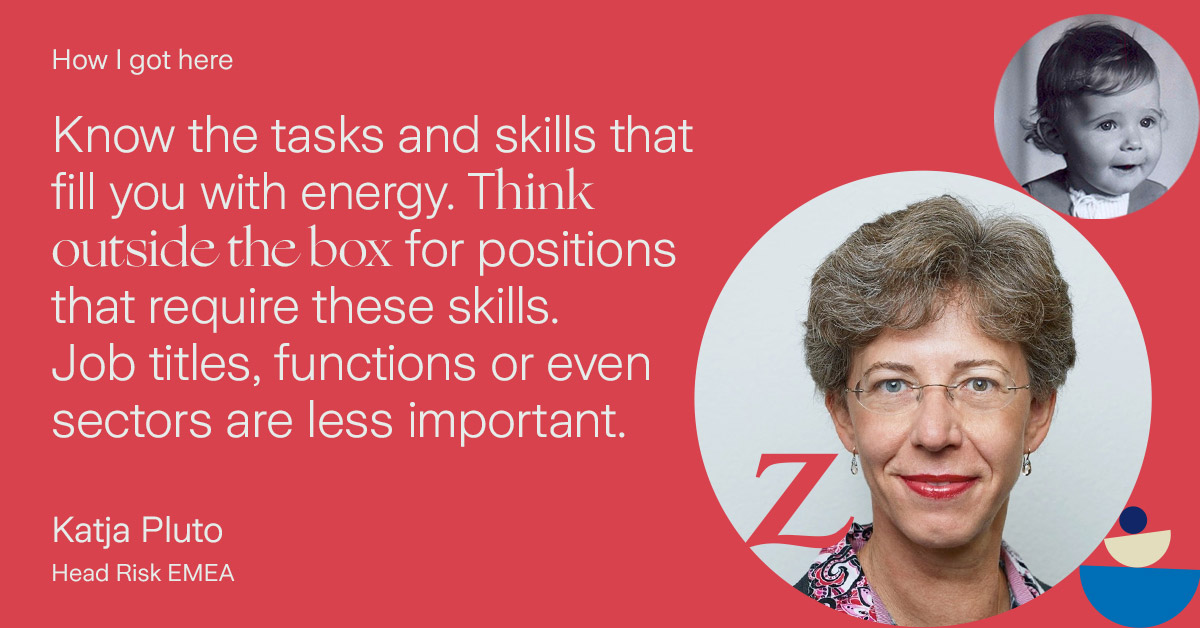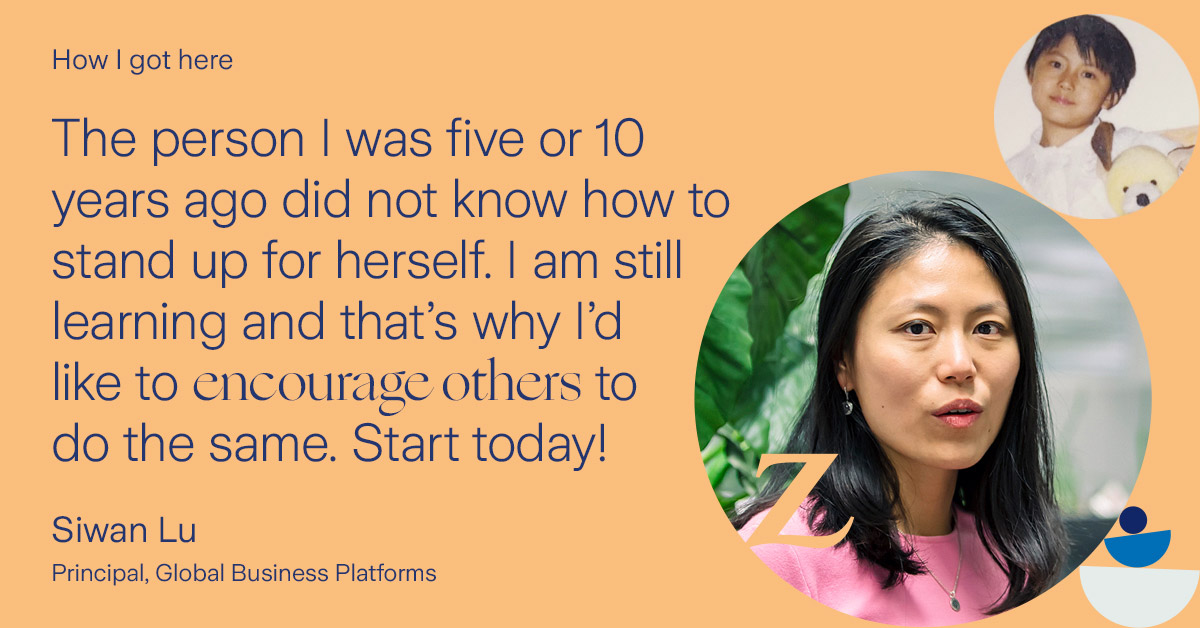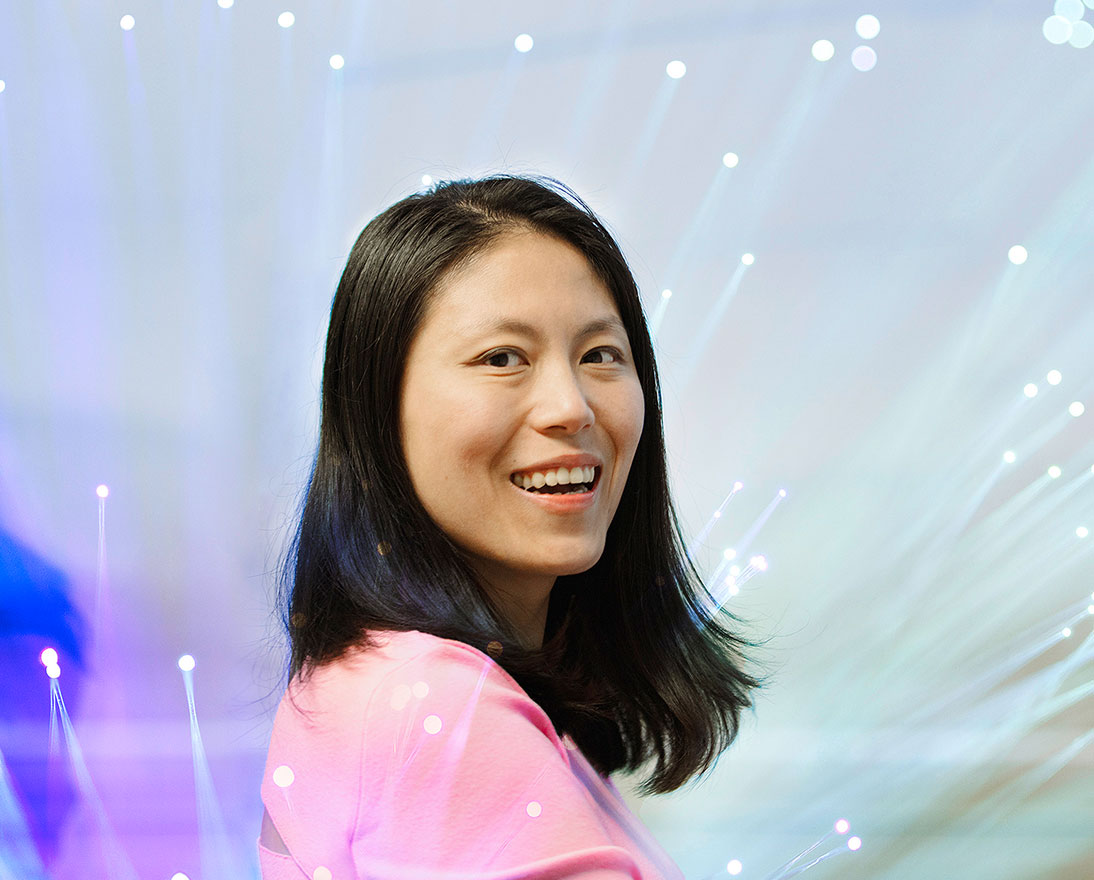Uncharted paths lead Zurich women to success
PeopleArticleMarch 5, 20216 min read
What did you want to be? Growing up, few women considered the insurance profession. But they found their way there, bringing talent and passion to work they love.
If you speak to enough women who have made a career in the insurance business, you will realize that most of them did not plan to be there. Many realized as they pursued their life’s work in other areas that the business held a place where they could use their talents and passion to help improve people’s lives and, they hoped, make the world a better place.
That’s true for six senior leaders at Zurich who shared how they found fulfilling careers in insurance, while overcoming barriers women often face as they rise to success.
Q - Did you expect to be where you are today in your career?
Johanna Köb, Head of Responsible Investment: As a kid, I had no way of imagining what “responsible investment” would be, or that fighting for a habitable climate would become urgent. But I have a strong drive to change things for the better and a good sense of whether I’m at the right place at the right time.
Siwan Lu, Principal, Global Business Platforms: When I was a kid in China, no. From a purpose perspective, yes; I wanted to promote justice, protect people and work to improve society.
Alison Martin, CEO EMEA & Bank Distribution: No, I had lots of career dreams – artist and ballet dancer among them – and it wasn’t until I was in my 20s that I realized insurance is actually pretty interesting.
Katja Pluto, Head of Risk EMEA: Not at all, I had no concrete career plans. Growing up in East Germany, avoiding jobs that required party membership was on my radar from an uncomfortably young age. All I wanted to do was apply my quantitative and science background.
Helene Westerlind, CEO LiveWell: In many ways, yes, but not as I expected. I wanted to be a doctor or veterinarian, as I am passionate about people and animals and among my core values are accountability, respect, care, curiosity and honesty. Today I can live my core values to the fullest by truly caring about people in my role as CEO of LiveWell.
Nadia Younes, Group Head, Employee Experience, Diversity & Inclusion and Wellbeing: In a sense, yes. When I was a kid, I was the one who befriended and stood up for the kids who were bullied or were outcasts. I have always been an eternal optimist who wanted to create a caring, safe place for anyone who needed it.

Q: How did you achieve success?
Siwan Lu: Belief and endurance. In Chinese, we refer to “BoLe,” which means that a good horse also needs a good trainer. BoLe has helped me all along the way.
Helene Westerlind: There has been a clear theme of being curious about the unknown and open to learn and grow from every assignment, even if it was something I had never done before. I trust my inner strength, capabilities and skill to make things work, together with a great team of people who share my passion and vision.
Johanna Köb: I followed what interested and sparked me most. I was offered a lot of amazing opportunities and support and worked hard to keep earning both.
Nadia Younes: Compared to so many, I won the birth lottery, having privileges such as a good education, home, nutrition and other advantages that are denied far too many children. I worked hard and am always learning more, but I had a head start and a lot of help along the way. I am fairly creative, so if one path didn’t work professionally, I found another one.
Q: Have you encountered barriers such as gender stereotypes during your career?
Alison Martin: I was mistaken plenty of times for the coffee lady or secretary earlier in my career. You can’t remove the barrier because it is someone’s perception, but you can knock it over and demonstrate why it is wrong.
Johanna Köb: I’m not aware of having run into job-related gender barriers; this should be normal, but it isn’t. I spent a lot of time in male-dominated environments and have been surrounded by people who gave me a seat at the table and encouraged me. I got the occasional “you are really young,” but time took care of that.
Siwan Lu: Yes, in both life and work. Five or 10 years ago, I didn’t know how to stand up. I am still learning.
Katja Pluto: Never outright discrimination, but in unconscious bias in allocation of tasks, expectations of my achievements and having to prove my abilities that men were assumed to have. If barriers persist, speak to the person who puts up the barriers. If that doesn’t work, you are probably better off with another company.

Q: If you could tell your past self one thing, what would it be?
Nadia Younes: Amplify and invest all you can in the good in yourself, others and the world. The world does not need more cynics. Don’t let your career or others define you. You are a whole person and need to invest your energy into the whole of your life’s joy and pursuits.
Katja Pluto: Be quicker to move when you have achieved all you can. I have stayed on too long on occasion, waiting for the right opportunity to find me.
Helene Westerlind: Don’t take things too seriously. Sometimes you just need to move on.
Johanna Köb: You’re far less crazy than you think. And fitting in is overrated. One day it will all make sense. Trust me, you’ll be just fine.
Siwan Lu: Be more playful, learn to seek less validation. Learn to fly without a net.
Alison Martin: Open your eyes sooner to inequalities. I saw through rose-tinted spectacles in my early career when I could have been a more vocal supporter of change.
Finding your way to success
Zurich senior leaders offer advice that can help women boost their careers. Among their tips:
- Know what gives you energy and avoid things that drain you
- Keep an active personal life to bring balance to your career
- Make sure the job fits your core values and passion
- Develop a deep curiosity about your work
- Stay connected with people who bring out the best in you
- Push yourself to be visible
- Don’t take criticism of your work personally

